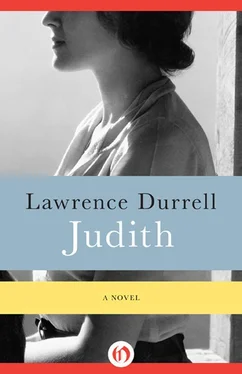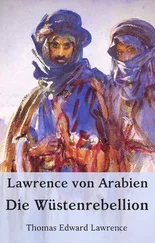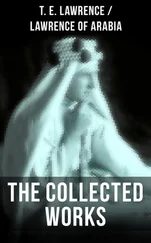“Stein,” he said. “There are at least eight identity cards which look suspicious. I don’t want to use a ruder word, but I have taken the names of the people involved and I’ll have them checked on.”
Aaron’s expression showed clearly that he recognized this as a bluff.
“By all means,” he said. “You are only obeying orders, after all.”
Lawton added a trifle more grimly: “And if they prove to be faked, they will have to be deported to Cyprus. I’m telling you this because I know you are on the Central Committee. I hope you will repeat it to them.”
“May I have a list of the names?” said Aaron.
“I’m afraid not,” said Lawton. “It’s confidential. You may go, Stein.”
Aaron walked back to the crowd, muttering: “Trying to get us worried.”
And now it was the turn of Grete. The four pairs of blue eyes regarded her with a certain diffident admiration. Her blonde beauty of face and feature was striking in the surrounding darkness. The coloured kerchief around her head only set off to advantage the slender magnificence of her profile and the luminous beauty of her eyes. Sergeant Francis could have kicked himself for discovering that her identity card was so obviously a fake. Her own picture had been glued over that of some previous owner, and it had worked its way loose. He lifted the corner with his fingernail, where the glue had become unstuck, to reveal a passport picture of a bearded youth. He swallowed audibly and said to Lawton:
“You had better look at this, Sir.”
Lawton looked at the girl for a moment, leaving the document on the desk before him.
“Name?” he asked. And she told him her name in a pleasant low voice. “Grete Schiller.” For some reason, her composure irritated him, and it was with a curl of his lip, almost a sneer, that he said:
“There’s no need to ask you a routine question. It is obvious you’re Ben Israeli too.”
Her retort came instantly: “As a matter of fact, I’m not. I’m an illegal immigrant. My paper is forged. And if it’s so obvious why are you wasting my time?”
This sudden and unexpected deviation from normal routine caused astonishment and dismay; astonishment on the faces of the British interrogators, and dismay on the faces of her compatriots.
“Has she gone mad?” said Aaron in a loud whisper to Sholem.
Carstairs stopped sucking his sweet, and repressed a chuckle. He scratched his nose and looked sideways at Lawton, whose discomfiture was obvious.
The Major ground his teeth and said: “I’m doing my duty, and as for you, young lady, you had better be more careful in what you have to tell me, or else… I could have you deported to Cyprus, you know.”
“I’m not afraid of this petty bullying,” she said scornfully. “We are all completely in your power. And you talk of duty and how much longer is this idiotic interrogation going to last. You’ve paralyzed the life of the camp, the children haven’t been fed, we are short of running water and all we hear about is your duty. Duty is all very well, but what about conscience?”
“Conscience?” said Lawton, setting his jaw grimly and out-staring her. “I wonder how many of you would be here if we had no conscience!”
She stared furiously at him but did not speak. Lawton took up the identity card, glanced at the photograph and handed it back to her. “You may go,” he said coldly and, in the same breath, curtly gave the order to terminate the operation. Then he called over his shoulder to Grete.
“Miss Schiller,” he said, “I think you look much nicer in the beard,” and, turning on his heel, strode out through the perimeter to the waiting jeep.
“If you want my opinion, Sir,” said Carstairs.
“I don’t,” said Lawton.
“Well, I’ll give it to you anyway, Sir. I think we’ve lowered our moral standards by not arresting her. It’s seldom one has a chance to arrest so pretty a girl. Here we are now, doomed to wenchlessness all the way to Jerusalem.”
But Lawton was in no mood for banter. He turned up the car radio full blast and the strains of “Lili Marlene” enveloped them.
Judith took Pete at her word and, claiming her papers, set off with the flock of sheep, having been formally confided to the care of old Karam, the Yemeni shepherd, and his two small grinning sons. Karam was a story-teller, a fortune-teller and a singer of old songs. He had a splendid great winged moustache and a small brass flute. They followed the flocks slowly along the verdant meadows and into the shadowy defile from which the river emerged. The pasture was rich hereabouts, and there were shady trees in the shadow of the cliffs. The pleasant noise of rushing water punctuated the silence and the shrill voices of the two boys who clambered about as active as goats. Somewhere up the mountain, invisible to them, there were Arab sharpshooters guarding the unmarked border. More than once they had been shot at, while the boys were always scaling the cliffs, much to the annoyance of the old man, who was always afraid that one of them, or both, might be shot by the sentinels on the Syrian side. But it was hopeless to try and control them; besides, once Ali had come slipping and slithering down the ravine among the loose stones with bullets chipping off flakes of rock all round him. He was bursting with laughter as he gained the shadow of the cliffs again. He had been snooping in the Arab camp and had even stolen a dagger which, still bursting with laughter, he threw in his father’s lap. Apparently, immediately behind the ramparts of stone, the desert began, and here lay an Arab force of some size, belonging to the tribe whose chief was Prince Daud, and whose advisers were rumoured to be British. It was hard to imagine this abrupt change from the desert to the encampment when one looked across this verdant and peaceful valley.
Midway up the cliffs were a number of gloomy-looking caves, which Karam very firmly declared out of bounds to them all; they were called the Whistling Caves by the Arabs, he said, and they were full of djinns which haunted them. While he himself was no Muslim, it was clear that he was quite superstitious, as befitted a star-gazer and teller of fortunes. He told Judith that there was a dark man in her life and the information amused her; pretty soon this man was going to threaten her. Later still he was going to die or be very badly hurt, Karam could not see which as yet. Or else, triumph over his enemies… Judith was a thorough-going sceptic and paid no attention to these sallies. But she worked and rested, and began to adore these apparently lazy days spent by the water. Then, one day, old Karam was unwell and the sheep went out with only the two boys for shepherds; as usual they wandered off on some expedition — it was to try and get a golden eagle nestling from the crags — and she was left alone. Some little flutter of emotion dispersed the sheep and two of the small lambs, much to Judith’s horror, made a bee-line for the Whistling Caves. She called for the boys, but they were nowhere to be seen. There seemed to be nothing for it but to follow them and try to drive them back. It was with trepidation that she entered the gloomy corridors of the first cave, in which she could hear the frightened bleating. She entered hesitantly, calling to them. She had hardly gone ten paces when a hand closed over her mouth and she felt a pistol pressed into her back. Terror rendered her speechless — had she been in a position to speak. She was turned round by strong hands and a torch was flashed in her face. Then she was released and found herself confronting a very angry though familiar figure. It was Aaron. He was in a towering rage.
“Fool. You have probably given away my position, wandering around with your blasted sheep. Why can’t you do as you’re told and keep them down by the river?”
Читать дальше












